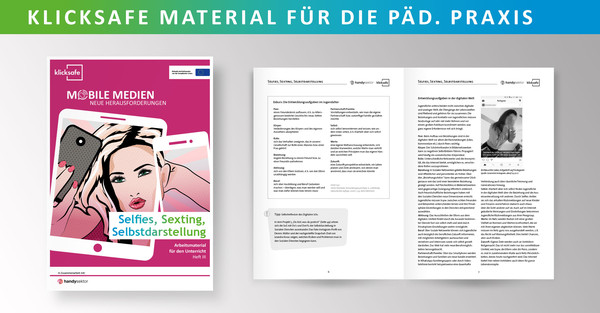New beauty filter at TikTokIs Bold Glamour putting pressure on young people?

The majority of young people spend several hours a day on social media. There, they are constantly confronted with supposedly perfect bodies and faces. Image and video-based platforms such as Instagram and TikTok invite them to compare the appearance of others with their own. How realistic photos and videos are is not always obvious at first glance. How peers, influencers and other role models present themselves influences how users want to portray themselves. The use of beauty filters can be a way for young people to approximate the beauty ideals conveyed online.
Young people under pressure on social media
Selfies and videos can be taken quickly with a smartphone and can be edited with little effort. Changing their appearance with the help of filters on Instagram, Snapchat or TikTok is now a daily practice for many users. However, beauty filters in particular could lead to the actual appearance no longer being perceived as beautiful. This is because the use of filters creates an "optimized self" that no longer matches the real self. Looking in the mirror then seems like a disappointment. Self-confidence suffers because you no longer find yourself beautiful without filters.
Tips for using beauty filters
- Reflecting on your own filter use
Photo and video filters are not problematic per se. Young people who are developing their identity are fascinated by the opportunities to change their appearance in a variety of ways. It is important to reflect on how and how often they are used. This applies to their own photos, but also to the edited photos of other users. - Use humorous filters
In addition to beauty filters, there are also fun filters for a funny appearance. Such filters can encourage a creative and humorous approach to your own appearance. - Deliberately omitting filters
Posting photos without filters every now and then can boost self-confidence. Users are often afraid that unfiltered photos will receive less encouragement in the form of likes and positive comments. It can help to look at profiles where users deliberately show themselves without filters using the hashtags #nofilter, #nomakeup or #facepositivity, for example. - Questioning beauty ideals
Beauty filters on social media reinforce current beauty ideals. In real life, however, hardly anyone looks like the edited image. It is important to question ideals of beauty and develop an awareness of where technical means are being used to help. - Deactivate the Like function
It is particularly important for young people to receive feedback about themselves. The need for likes and positive comments on social media puts adolescents under a lot of pressure. To counteract this pressure, it helps to switch off the Like function. This is now possible on Instagram.
Info for young people about beauty ideals on the net
The JUUUPORT consulting platform has published a comprehensive guide on the topic. It contains information on beauty ideals on the Internet and counter-movements to current trends. The guide also offers tips on how to free oneself from the pressure of having to conform to certain ideals.
If you would like individual advice, you can contact the JUUUPORT scouts Monday to Friday from 6 to 8 p.m. in the JUUUPORT chat chat.
Suitable klicksafe material for the classroom
In the class project "BeYourSelfie" from the material "Selfies, Sexting, Self-Expression" the students reflect on the influence of beauty filters and digital beauty images on their idea of beauty.

